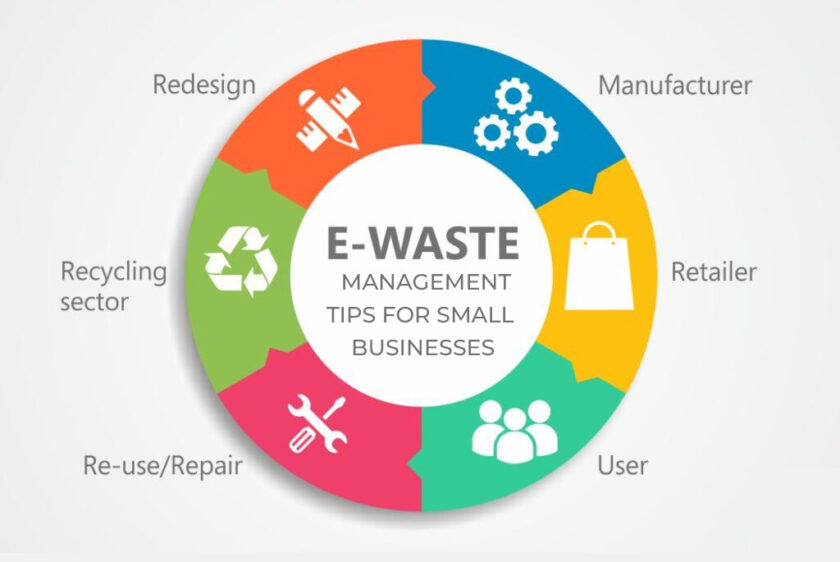
E-waste management tips for small businesses in India
E-waste presents a major environmental challenge worldwide as technology continues to advance rapidly. Small businesses in India are struggling to efficiently dispose of outdated electronic equipment. This blog post will examine the main challenges small businesses face in managing e-waste, explore sustainable disposal methods, address regulatory compliance, and offer practical tips to reduce the environmental impact of electronic waste.
Challenges Faced by Small Businesses

- Lack of Awareness: Many small businesses in India may need to be fully aware of the environmental impact of improper e-waste disposal or the available sustainable alternatives.
- Limited Resources: Small businesses generally operate on tight budgets. Therefore, it is challenging to allocate resources for proper e-waste management.
- Inadequate Infrastructure: The absence of organized e-waste collection systems in many regions further complicates the disposal process for small businesses.
Sustainable Disposal Methods
- Reuse and Refurbishment: Before considering disposal, assess if the electronic equipment can be reused or refurbished. It extends the life of the equipment and reduces the overall waste generated.
- Recycling Programs: Collaborate with certified e-waste recyclers who follow environmentally responsible practices. Look for recycling facilities that adhere to international standards and have proper certifications.
- Take-Back Programs: Engage with manufacturers or suppliers who offer take-back programs. It ensures responsible disposal of electronic products at the end of their life cycle.
- Local Collection Drives: Participate in or organize local e-waste collection drives. It can be done in collaboration with other small businesses or community organizations to create a more significant impact.
Regulatory Compliance
- E-Waste Management Rules, 2016: Familiarize yourself with the E-Waste Management Rules in India. These regulations mandate the proper handling, recycling, and disposal of e-waste, and non-compliance can result in penalties.
- Extended Producer Responsibility (EPR): Understand your responsibilities as a producer of electronic goods. Implement EPR measures, which include taking back and recycling your products at the end of their life cycle.
- Documentation and Reporting: Maintain detailed records of your e-waste disposal activities. Compliance often requires businesses to submit periodic reports, and maintaining accurate documentation is crucial.
Practical Advice for Small Businesses
- Educate Employees: Train your staff on the importance of proper e-waste disposal and provide guidelines on segregating electronic waste from other types of waste.
- Establish Collection Points: Set up designated collection points within your business premises to encourage employees to deposit obsolete electronic equipment for proper disposal.
- Partner with Certified Recyclers: Choose e-waste recyclers that are certified by regulatory authorities. It ensures that the disposal process aligns with environmental standards.
- Periodic Audits: Conduct regular audits to assess your e-waste management practices. It helps identify areas for improvement and ensures ongoing compliance with regulations.
Conclusion
By adopting responsible e-waste management practices, small businesses in India can contribute significantly to environmental sustainability. Educating employees, partnering with certified recyclers, and staying compliant with regulations are essential steps toward minimizing the ecological impact of electronic waste. As small businesses embrace these practices, they fulfill their environmental responsibilities and set an example for others in their communities. Together, we can build a more sustainable future for the Indian small business sector.
Follow us:







